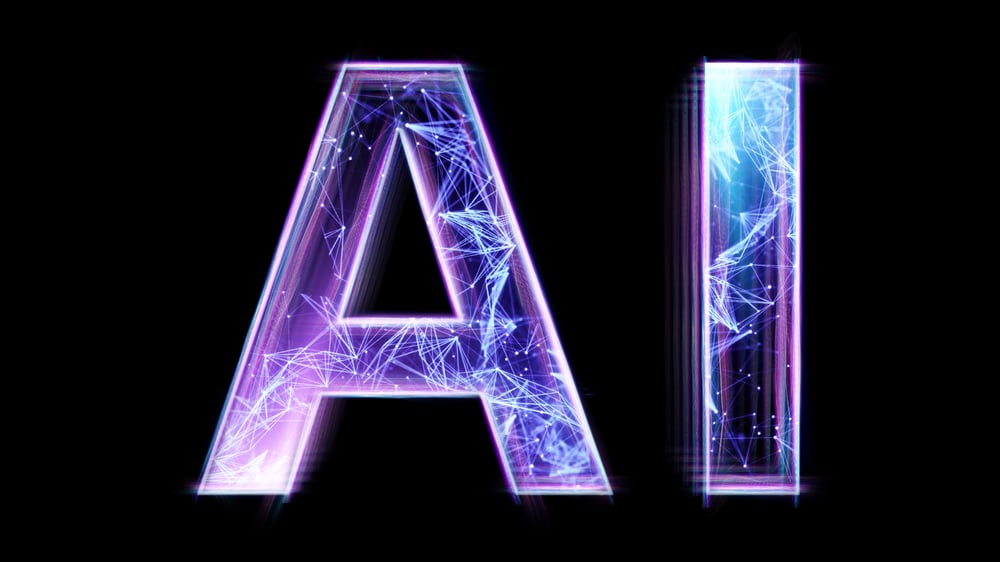Your 2025 AI Engineering Roadmap: Skills and Certifications to Prioritize
AI Technology Jan 8, 2025 9:00:00 AM Ken Pomella 3 min read

As artificial intelligence (AI) continues to transform industries, the demand for skilled AI engineers is surging. Whether you're an experienced IT professional or a newcomer looking to break into this dynamic field, planning your career path strategically is essential. The year 2025 is poised to bring exciting advancements in AI, but also heightened competition. To stand out, you’ll need the right mix of skills, certifications, and a forward-thinking mindset.
In this blog, we’ll explore the critical skills to master, the certifications to prioritize, and actionable tips to help you build a robust AI engineering roadmap for 2025.
Why 2025 Is the Perfect Time to Upskill in AI Engineering
The AI landscape is evolving rapidly, with applications expanding across healthcare, finance, manufacturing, and beyond. Gartner predicts that the AI software market will grow by over 20% in 2025, creating unprecedented opportunities for professionals with the right expertise.
Key drivers for this demand include the rise of generative AI, tools like ChatGPT and enterprise-level solutions driving adoption, AI-powered automation helping businesses streamline operations and cut costs, and advances in cloud-based AI from platforms like AWS, Azure, and Google Cloud democratizing access to AI tools.
To thrive in this environment, you need a clear roadmap that focuses on the most relevant and impactful skills and certifications.
Core Skills to Master for AI Engineers in 2025
Machine Learning and Deep Learning Fundamentals are non-negotiable for AI engineers. In 2025, focus on understanding supervised, unsupervised, and reinforcement learning; neural networks like CNNs (Convolutional Neural Networks) and RNNs (Recurrent Neural Networks); and modern deep learning architectures like transformers, which power models such as GPT and BERT. Start with online courses on platforms like Coursera or Udemy, and practice hands-on projects using frameworks like TensorFlow and PyTorch.
Programming and data skills are equally important. Proficiency in Python is essential for building and deploying AI models. You should also develop skills in data manipulation using tools like Pandas and NumPy, database management with SQL, and big data tools such as Spark or Hadoop. To build these skills, work on end-to-end AI projects, explore open-source datasets, and participate in data challenges on Kaggle.
Cloud Computing and AI Services are integral to AI development. Learn to use AWS SageMaker for model training and deployment, Google Cloud AI Platform for scalable solutions, and integrate AI services like Amazon Rekognition or Azure Cognitive Services. Enroll in cloud-specific AI training programs and gain hands-on experience with real-world projects hosted on cloud environments.
MLOps and Deployment Skills are critical for scaling AI solutions in production environments. Focus on CI/CD pipelines for ML workflows, model monitoring and retraining, and tools like Kubeflow and MLflow. Build and deploy your AI solutions using Docker and Kubernetes and participate in hackathons to practice real-world deployments.
AI Ethics and Governance are increasingly important with the rise of regulations like the EU AI Act. Focus on bias detection and mitigation in models, explainable AI (XAI), and privacy-preserving AI techniques like federated learning. Explore resources from organizations like OpenAI and the Partnership on AI, and study real-world case studies of ethical AI practices.
Top Certifications for AI Engineers in 2025
Certifications validate your skills and make your resume stand out. Prioritize certifications such as AWS Certified Machine Learning – Specialty, which validates expertise in building, training, and deploying ML models on AWS; Google Professional Machine Learning Engineer, which focuses on designing and productionizing ML models using Google Cloud; and Microsoft Certified: Azure AI Engineer Associate, demonstrating proficiency in Azure AI services.
Also consider the TensorFlow Developer Certificate for AI application development, Certified Artificial Intelligence Practitioner (CAIP) for a broad spectrum of AI technologies, and Dataiku Certification for expertise in end-to-end AI workflows.
How to Create Your Personalized Roadmap
Begin by assessing your current skills to identify gaps in your knowledge through self-assessment or mentorship. Use online skill quizzes or beginner-friendly AI projects to gauge your starting point. Set clear goals by creating short-term milestones, such as completing a specific course or certification in the next three to six months, and long-term objectives like building a portfolio of AI projects that demonstrate end-to-end capabilities.
Plan your learning path by allocating time for learning, hands-on projects, and certifications. Join study groups or online communities for support and accountability. Stay updated by following industry news to track emerging AI tools and frameworks. Subscribe to resources like the AWS Machine Learning Blog and AI newsletters to stay informed.
Tips for Success in 2025
Leverage open-source projects on GitHub to gain experience and visibility. Build a portfolio showcasing your skills with real-world projects, and share it on platforms like GitHub or personal websites. Network actively by attending AI meetups, webinars, and conferences to connect with industry professionals. Explore niche areas such as generative AI, edge computing, or geospatial AI for unique opportunities.
Conclusion
2025 is brimming with opportunities for IT professionals ready to upskill in AI engineering. By focusing on in-demand skills like machine learning, cloud computing, and MLOps, and earning certifications that validate your expertise, you can position yourself as a top candidate in this competitive field. Start planning your learning journey today to take full advantage of the exciting possibilities ahead.

Ken Pomella
Ken Pomella is a seasoned technologist and distinguished thought leader in artificial intelligence (AI). With a rich background in software development, Ken has made significant contributions to various sectors by designing and implementing innovative solutions that address complex challenges. His journey from a hands-on developer to an entrepreneur and AI enthusiast encapsulates a deep-seated passion for technology and its potential to drive change in business.
Ready to start your data and AI mastery journey?
Explore our courses and take the first step towards becoming a data expert.
